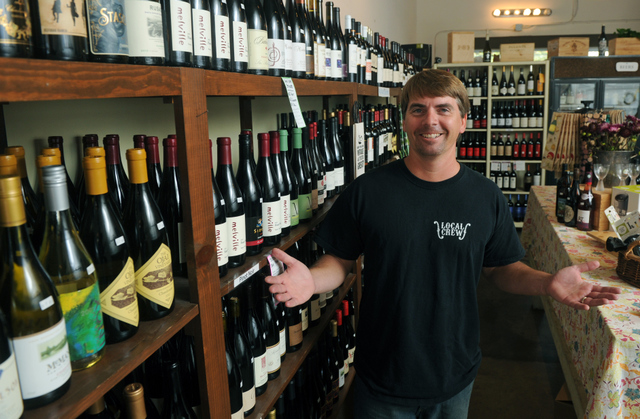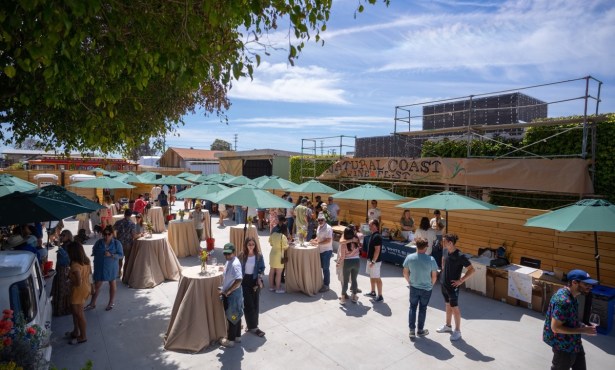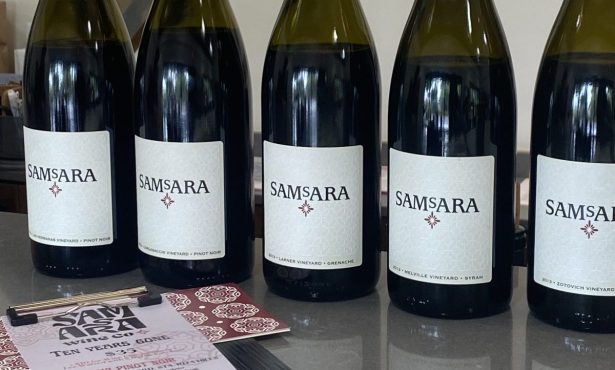Get to Know Geeky Wines
Having Fun at Vino Divino with Obscure Regions and Varietals

Wine is a profoundly humbling hobby. Just when you think you’ve found the latest bang-for-buck regions (like cabernet franc from Chinon in France’s Loire Valley) or swerved ahead of the curve on forgotten varietals (like pelaverga from northern Italy), something new smacks the smug grin off your face, reminding that the world of wine is an ever-evolving yet millennia-old industry you’ll never fully tame.
Last week, my regional wake-up came in the form of a vibrant roussanne from Savoie in the French Alps, while the varietal revelation was delivered from Paso Robles in a lush but limber grape called marselan, a hybrid between grenache and cabernet sauvignon. The former, from nursery-turned-winery Domaine Jean Vullien, and latter, from Benjamin and Nadine Spencer’s “micro” label Leojami, were a preview of what to expect this Friday, August 23, when Angeles Wine Agency broker Daniel Berman opens up some bottles from his extensive portfolio to share with sippers at Vino Divino, the small but amply stocked wine shop on De la Vina Street that Sean and Gabby Larkins opened in 2004. We also indulged in a Crozes-Hermitage syrah from David Reynaud’s Domaine Les Bruyères in the northern Rhône, just to complete a trio that would satisfy anyone who geeks out on the mysterious mix of history and happenstance that leads to any given bottle.
For nearly a decade, these sorts of discoveries have been available daily at Vino Divino, but loyal customers really pack it in for the Friday-evening tastings, which are scheduled sporadically but always feature five or more wines to try. That enthusiastic sharing of knowledge is in part what prompted Larkins to open his shop after many years of working for others in the wine business, from retail jobs (his first was at Wine Time on State Street) to brokering (where he was occasionally forced to sell wines he didn’t like) to working tasting rooms. “Out of all the jobs I had,” Larkins told me between sips, “this was the most fun, the shop.”
Today, Vino Divino stocks 400 to 600 bottlings from about 300 producers, with a wide variance in pricing. “People see us as a mom-and-pop shop and think it’s only expensive stuff,” said Larkins. “But I sell a lot of stuff that’s $6.99 and $7.99.” To help his customers find the best deals, he runs an extensive website and publishes a newsletter, which drives sales, especially of the geekier stuff.
Here are some more notes on the three wines we tried.
Domaine Jean Vullien’s Chignin-Bergeron: Though roussanne is known for being very dense and oily, the higher, colder climate of the French Alps must pack in the acid because this is much lighter on its feet than usual but with lots of flavor layers that keep unfolding in the glass. “This roussanne is clean — more refreshing than normal,” agreed Larkins, who sells this one for $20.
Leojami’s RÆd Red: RZB Vineyard, located in the breezy Templeton Gap area, is focused on “international and experimental” varieties, and its one-acre patch of marselan is the only known planting of the grenache-cab hybrid in the United States. The wine packs in the dense jammy fruits of the cab but lightens up with the juicier elements of the grenache. “This is a geeky wine, but it’s totally for everybody,” said Larkins, who offers this for $18.
Domaine Les Bruyères’s Crozes-Hermitage: Though respected as a grape grower in the northern Rhône Valley since 1955, the Reynaud family didn’t start making their own wine until 2003 when then 28-year-old David — grandson of founder Georges Reynaud — jumped in, turning the whole process biodynamic two years later. The wine, which sells at Vino Divino for $32, brings healthy doses of eucalyptus and menthol, offering up a slice of one of the world’s greatest wine regions for a relatively modest price tag.
See vinodivinosb.com.



